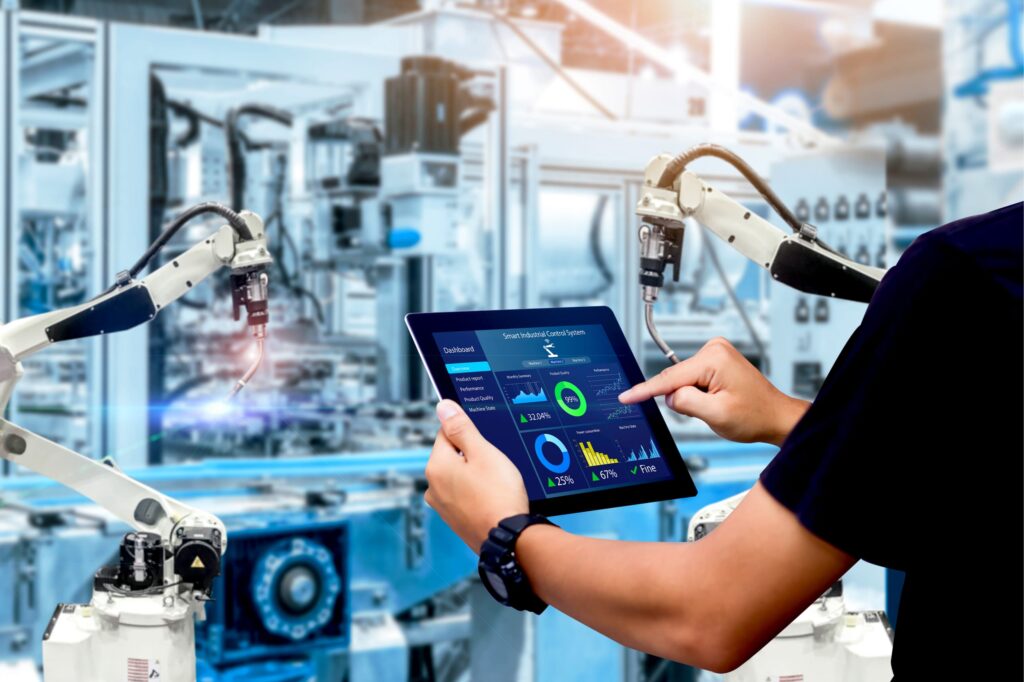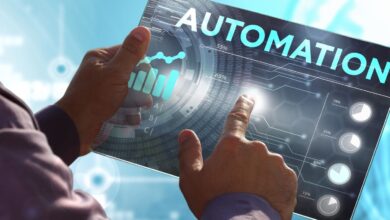Introduction
Hello there! Today, we will dive into a topic that has transformed our world and continues to do so: automation. What is Automation Revolution? And how does it impact our everyday life and future?

The Definition of Automation
Automation refers to using machines, robots, or technology to perform tasks that humans once did. It increases efficiency, eliminates errors, and allows for round-the-clock productivity.
History of Automation
-
Automation in Early Civilizations
Automation isn’t a new concept; it dates back to ancient civilizations. From the irrigation systems of Mesopotamia to the automated doors in ancient Greek temples, our ancestors were inventors of early automation technology!
-
The Industrial Automation Revolution
Fast forward to the Industrial Revolution, automation took a massive leap forward by introducing machines like the power loom and the steam engine.
The Role of the Automation Revolution in Different Industries
-
Automation in Manufacturing
From assembly lines in car factories to robotic arms in electronics manufacturing, automation is the backbone of the manufacturing industry.
-
Automation in Healthcare
Did you know? Automation plays a vital role in healthcare too! Robots assist in surgeries, automated machines process lab tests, and AI algorithms help diagnose diseases.
-
Automation in Transportation
Automation is revolutionizing transportation. We’ve autonomous drones, self-driving cars, and automated scheduling in public transportation. It’s transforming how we commute!
The Impact of Automation on Employment
-
Job Loss Due to Automation
Here’s the flip side: automation can lead to job displacement. Routine, repetitive jobs are most at risk.
-
New Job Creation by Automation
But don’t fret! Automation also creates new job opportunities. Just as the loom led to the rise of textile industries, modern automation opens doors to roles like robotics engineers and data scientists.
The Future of Automation
-
Opportunities in Automation
The future is full of opportunities. AI and machine learning are developing; automation will continue to evolve, promising exciting prospects.
-
Challenges Ahead
Despite its benefits, there are challenges too. Ensuring ethical use of automation, mitigating job loss, and addressing security concerns are key hurdles to navigate.
Conclusion
In essence, automation is a double-edged sword. While it offers efficiency and innovation, it also presents challenges. However, we can harness its benefits and mitigate its downsides proactively. So, are you ready to embrace the automation revolution?
FAQs for Automation Revolution
How does automation impact various industries?
Automation significantly influences several industries, from manufacturing to healthcare and transportation. It allows for increased productivity, reduced errors, and more precise results.
Does automation lead to job loss?
While automation can lead to the displacement of certain types of jobs, particularly routine and repetitive ones, it also creates new opportunities. As technology advances, new roles emerge, such as data scientists, robotics engineers, and AI specialists.
What is the future of automation?
The future of automation holds immense potential. With the advancement of technologies like artificial intelligence and machine learning, we can expect even more sophisticated automated processes. However, this also means navigating ethical and security concerns related to its use.
How can we prepare for an increasingly automated future?
Embracing lifelong learning, developing adaptable skills, and staying updated with technology trends can help us prepare for an automated future. Moreover, industries and policymakers must work together to ensure the ethical and fair use of automation technology.




